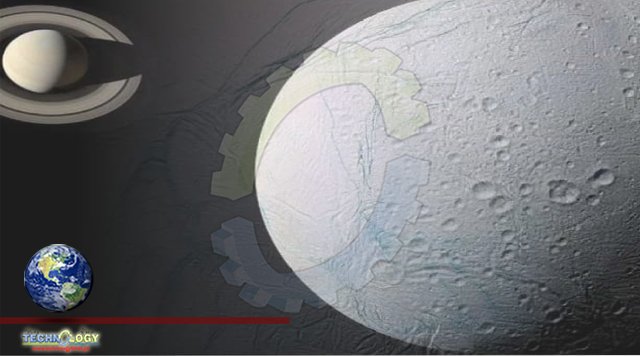The subsurface ocean of Saturn’s moon is most likely rich in phosphorus, a key component for life. Saturn’s Moons The hunt for extraterrestrial life has just become more intriguing as a group of researchers led by Dr. Christopher Glein of the Southwest Research Institute found new evidence of a key building block for life in the subsurface ocean of Saturn’s moon Enceladus.

According to new modeling, Enceladus’ ocean should be quite rich in dissolved phosphorus, a crucial ingredient for life. “Enceladus is one of the prime targets in humanity’s search for life in our solar system,” said Glein, a leading expert in extraterrestrial oceanography. He is a co-author of a paper recently published in the journal Proceedings of the National Academy of Sciences (PNAS) describing this research. “In the years since NASA’s Cassini spacecraft visited the Saturn system, we have been repeatedly blown away by the discoveries made possible by the collected data.”Saturn’s Moons, The Cassini mission detected and analyzed samples of Enceladus’ underlying liquid water when plumes of ice grains and water vapor burst into space from cracks in the moon’s icy surface. One of the most significant findings in planetary science in the last 25 years is that worlds with oceans under an ice surface layer are common in our solar system.
The icy satellites of the large planets, including Europa, Titan, and Enceladus, as well as more distant entities like Pluto, are examples of such worlds. Worlds with surface seas, like Earth, must stay within a narrow range of distances from their host stars in order to maintain temperatures suitable for surface liquid water. Interior water ocean worlds, on the other hand, may occur across far greater distances, substantially increasing the number of habitable worlds that are predicted to exist throughout the galaxy. “Saturn’s Moons, The quest for extraterrestrial habitability in the solar system has shifted focus, as we now look for the building blocks for life, including organic molecules, ammonia, sulfur-bearing compounds as well as the chemical energy needed to support life,” Glein said. “Phosphorus presents an interesting case because previous work suggested that it might be scarce in the ocean of Enceladus, which would dim the prospects for life.” Phosphorus in the form of phosphates is vital for all life on Earth. It is essential for the creation of DNA and RNA, energy-carrying molecules, cell membranes, bones, and teeth in people and animals, and even the sea’s microbiome of plankton.
Source: This news is originally published by scitechdaily
